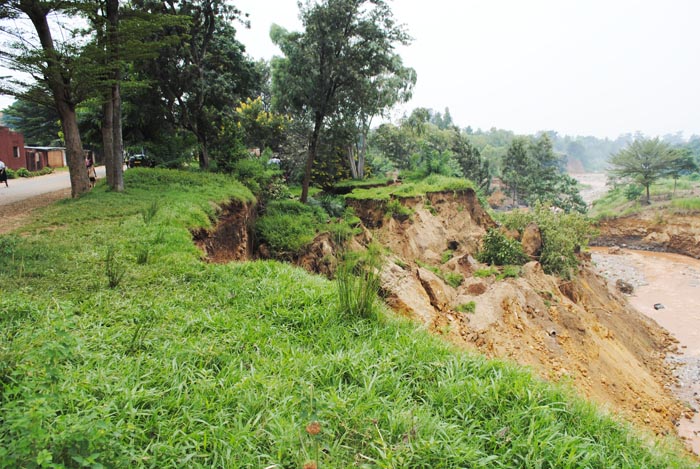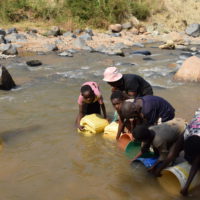The street commonly called Sanzu of South Mutanga is in a dangerous situation due to a natural catastrophe caused by Ntahangwa River. People living along that street risk moving because their houses can fall into the river at any time.-By Lorraine Josiane Manishatse
“The catastrophe that occurred on 20th February 2014 made me pessimistic. At any time, our houses can fall into the river. We are in desolation,” regrets K.D, an inhabitant of South Mutanga, the owner of one of the houses in danger. According to her, considering what happened that day, more than 7 houses, the South Mutanga Primary School and Municipal School can be destroyed at any moment. “People of the area have decided to give some contribution for urgent works, but the amount we have today is insignificant if you look at how the situation is evolving,” she says disappointedly. She states that all those problems are caused by the bad management of “Sororezo”, the new quarter. There are no gutters to evacuate water and still trees that cover the soil have been cut when building new houses.
Ntahangwa River has been neglected
For Nuni Bonaventure, the South Mutanga neighborhood Chief, Ntahangwa is the only river in Bujumbura that has not been well-protected. “It has been neglected, and people continue to look for construction materials disorderedly from that river, that is the reason why it is now causing heavy damage,” he points out. He explains that at the neighborhood level, they have formed a follow-up commission. That commission has written a letter to the 2nd vice President asking him for urgent needs to save the street, some houses and the primary school in a dangerous situation before protecting the river very strongly. “The International Platform of Management and Prevention of Natural Catastrophe with donors such as World Bank, UNDP, AfDB, and EU has promised to fund for that river sustainable protection,” he says. He asks the Ministry in Charge of Environment and the Ministry of Public Work, Infrastructure and Equipment to be more involved in protecting more threatened houses and other public infrastructures very urgently.
















 IWACU Open Data
IWACU Open Data

